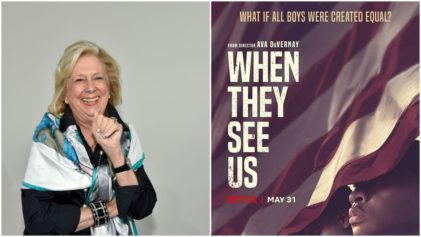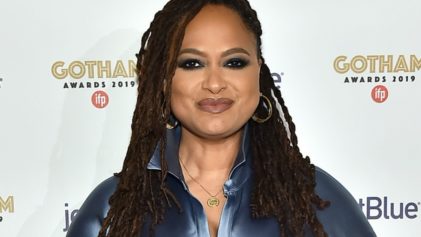Following Selma’s Christmas release date in several markets, the film has earned several rave reviews and a coveted Golden Globe nomination, but it has also sparked an ongoing debate about the portrayal of President Lyndon B. Johnson in the film.
The film Selma captured the emotional battle for equality and suffrage for Blacks and reminded moviegoers just how great of a battle it really was.
In the midst of intense and blatant racism and the obstacles posed by segregation, Martin Luther King Jr. and other prominent leaders of the Civil Rights Movement lived lives full of sacrifice in order to better the futures of their own people.
It’s a powerful story that was captured well in the Ava DuVernay-directed film, but there is one character portrayal that had some people raising a brow.
While one side argues that the film did its due diligence in capturing the former president’s role in Selma, others are suggesting that Johnson was painted to be something worse than what he really was.
It all started when Joseph A. Califano Jr., Johnson’s top assistant for domestic affairs from 1965 to 1969, wrote an article published by The Washington Post claiming that Selma was actually Johnson’s idea and that the depiction of the president butting heads with King was completely false.
“The makers of the new movie ‘Selma’ apparently just couldn’t resist taking dramatic, trumped-up license with a true story that didn’t need any embellishment to work as a big-screen historical drama,” Califano wrote. “As a result, the film falsely portrays President Lyndon B. Johnson as being at odds with Martin Luther King Jr. and even using the FBI to discredit him, as only reluctantly behind the Voting Rights Act of 1965 and as opposed to the Selma march itself.”
He took things even further by adding, “In fact, Selma was LBJ’s idea, he considered the Voting Rights Act his greatest legislative achievement, he viewed King as an essential partner in getting it enacted — and he didn’t use the FBI to disparage him.”
Black Twitter was swift to respond with tweets mocking the article, but a new report introduced another more interesting claim about Johnson’s portrayal.
Researchers actually claim that Blacks of the Civil Rights Era also would have been largely opposed to the former president’s portrayal in Selma.
Associate professor of political science at Northwestern University Alvin B. Tillery Jr. teamed up with the late Hanes Walton Jr. of the University of Michigan back in 2009 to launch a study about how presidents were portrayed in African-American media.
While the analysis of all the Black newspapers from 1900 to 2010 has not been completed, Tillery says they did look through all the media from the Civil Rights Era and that these newspapers all gave positive feedback about Johnson.
“Our results show that of the five presidents between 1948 and 1972, Johnson had the highest approval ratings among the editorial boards of these newspapers,” Tillery wrote in an article published by The Washington Post. “Astoundingly, all 34 of the editorials on Johnson’s civil rights record that ran in these given papers during his administration evaluated him positively.”

The problem with the study, however, is that there is no guarantee that the authors of these editorials had any more knowledge about what happened behind closed doors than anyone else in the Black community.
Selma did not suggest that Johnson was an awful president, but it merely suggested that there were other pressures behind closed doors that forced him to show support for the Civil Rights Movement.
Either way, DuVernay said she had clear intentions going into the film.
When she saw that the original script was slanted more toward the former president, DuVernay realized that she needed to shift the focus.
“The script was the LBJ/King thing, but originally, it was much more slanted to Johnson,” she said to Rolling Stone. “I wasn’t interested in making a white-savior movie; I was interested in making a movie centered on the people of Selma. You have to bring in some context for what it was like to live in the racial terrorism that was going on in the Deep South at that time.”
She also said that the film was always intended to be a “dramatization of the events” but that she also thought it was important not to “deify what the president did.”
In the midst of all the controversy, moviegoers were also shocked to see Selma missing from the list of nominees for the Producers Guild of America Award for Best Theatrical Motion Picture.
Other films snubbed by the PGAs included Unbroken and Into the Woods.


